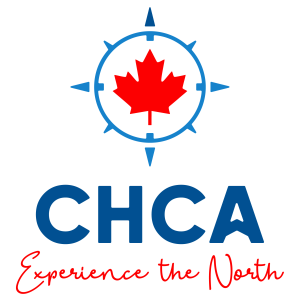NUNAVUT - Agency Nurse Orientation Training Program
Weekly outline
-
Nunavut Orientation Overview
Welcome to CHCA's orientation to practice in Nunavut.
CHCA Nurses working in Nunavut will have already completed the Contract Nurse Training Program offered upon initial hire to our agency. This comprehensive orientation program prepares nurses for practice in remote nursing stations in Canada's north.
This Agency Nurse Orientation Training Program (ANOTP) provides nurses with additional Nunavut and Inuit-specific information, in order to practice safely and effectively, and provide the highest possible quality of care for the Inuit people.
-
Required Pre-Reading
- ISC Clinical Care Pathways (CPGs): Adult Guidelines Introduction
- ANAC: Cultural Competence and Cultural Safety in Nursing Education - A Framework for First Nations, Inuit and Metis Nursing
- SOGC: Indigenous Companion Piece
- RNANTNU - Position Statement - Cultural Safety
- Trauma Informed: The Trauma Toolkit
Content in this module is derived from the Aboriginal Nurses' Association of Canada document: "Cultural Competence and Cultural Safety in Nursing Education - A Framework for First Nations, Inuit and Métis Nursing".
In this module, Agency Nurses will work toward reconciliation through delivery of health care. They will develop a better understanding of Cultural Safety, and how it relates to the Indigenous peoples of Canada, specifically Inuit People. This module will also review Inuit culture and history, and will explore ways in which Agency Nurses can deliver care, respecting traditions and culture.
Agency Nurses will develop the ability to establish a positive therapeutic relationship and open communication with Inuit clients and their families, characterized by understanding, trust, respect, honesty and empathy.
Socio-cultural and political factors that are health-protective will be explored, as well as those factors which undermine the health of Inuit peoples and place them at risk for increased morbidity and mortality. Discussion of how basic human rights (e.g. adequate housing, employment) are "out of reach" for many if not most Inuit people.
Agency Nurses will analyze and understand the limitations of their knowledge and perspective and incorporate new ways of seeing, valuing and understanding the health and health practices of Indigenous peoples.
-
Indigenous Canada is a 12-lesson Massive Open Online Course (MOOC) that explores Indigenous histories and contemporary issues in Canada. From an Indigenous perspective, this course explores key issues facing Indigenous peoples today from a historical and critical perspective highlighting national and local Indigenous-settler relations.
Topics for the 12 lessons include the fur trade and other exchange relationships, land claims and environmental impacts, legal systems and rights, political conflicts and alliances, Indigenous political activism, and contemporary Indigenous life, art and its expressions.
-
This national webinar series provides an opportunity to share knowledge; experiences and perspectives in support of collective efforts to strengthen Indigenous cultural safety in health and social services.
Webinars:
- Setting the Context for Indigenous Cultural Safety: Facing Racism in Health
- Racism and Privilege in the Everyday
- The “Raced” Body: Reflecting on Clinical Encounters
- Racism, Reconciliation, and Indigenous Cultural Safety
- Deconstructing Racism Strategies for Organizational Change
- Critical Race Theory and its Implication for Indigenous Cultural Safety
- Indigenous Health Equity: Examining Racism as an Indigenous Social Determinant of Health
- Addressing Anti-Indigenous Racism in Health Care: Strategies for Implementing System-level Change
- Cultural Safety in the Classroom: Addressing Anti-Indigenous Racism in Education Settings
- Racism Hurts: Exploring the Health Impacts of Anti-Indigenous Racism
- Decolonizing Anti-Racism
-
- ISC Clinical Care Pathways (CPGs): Adult Guidelines Introduction

